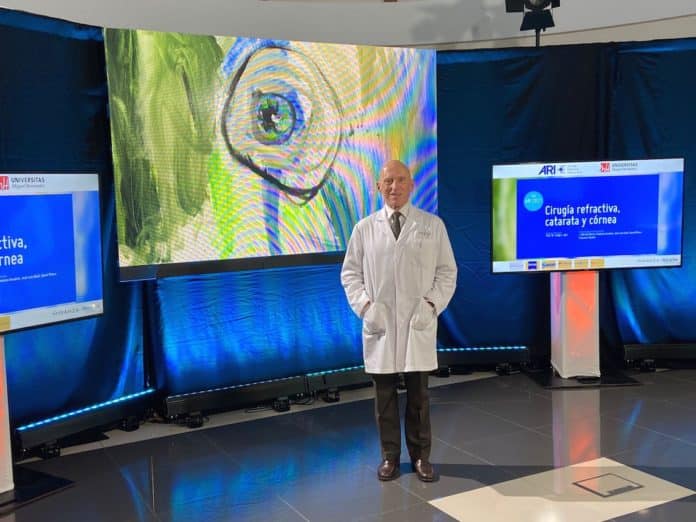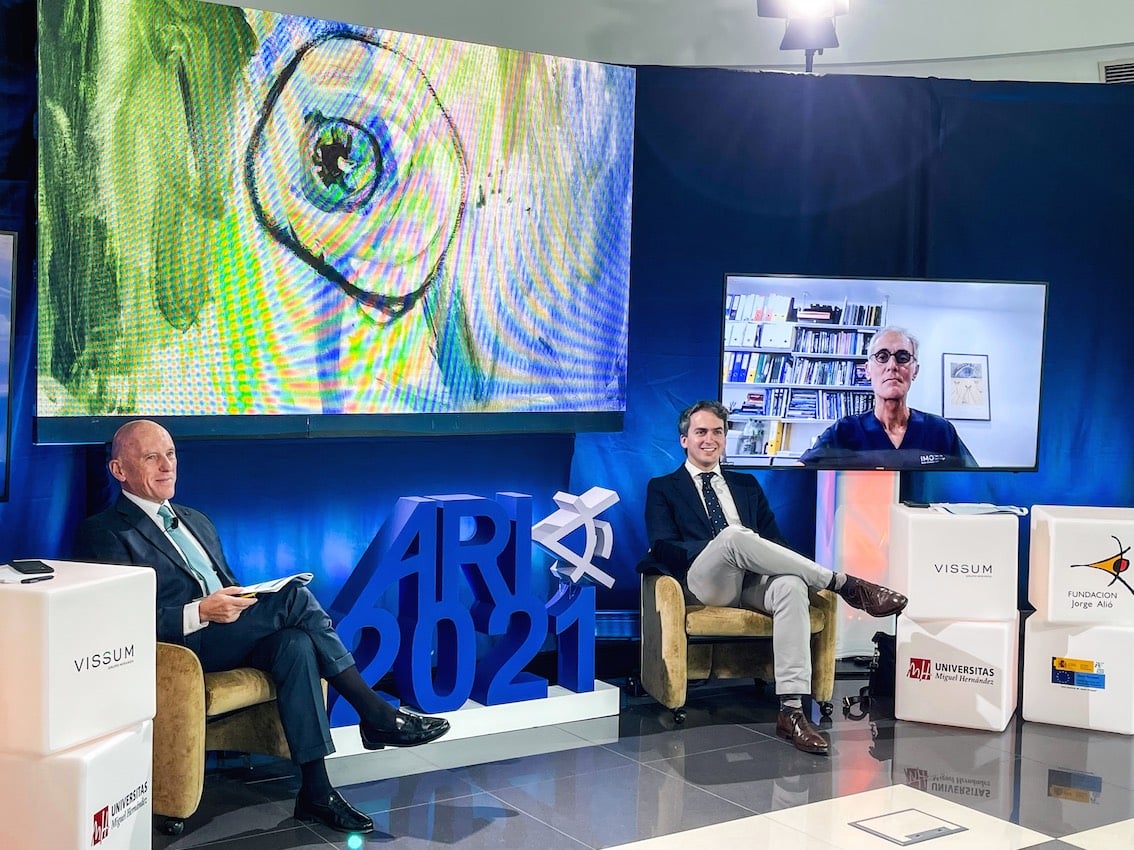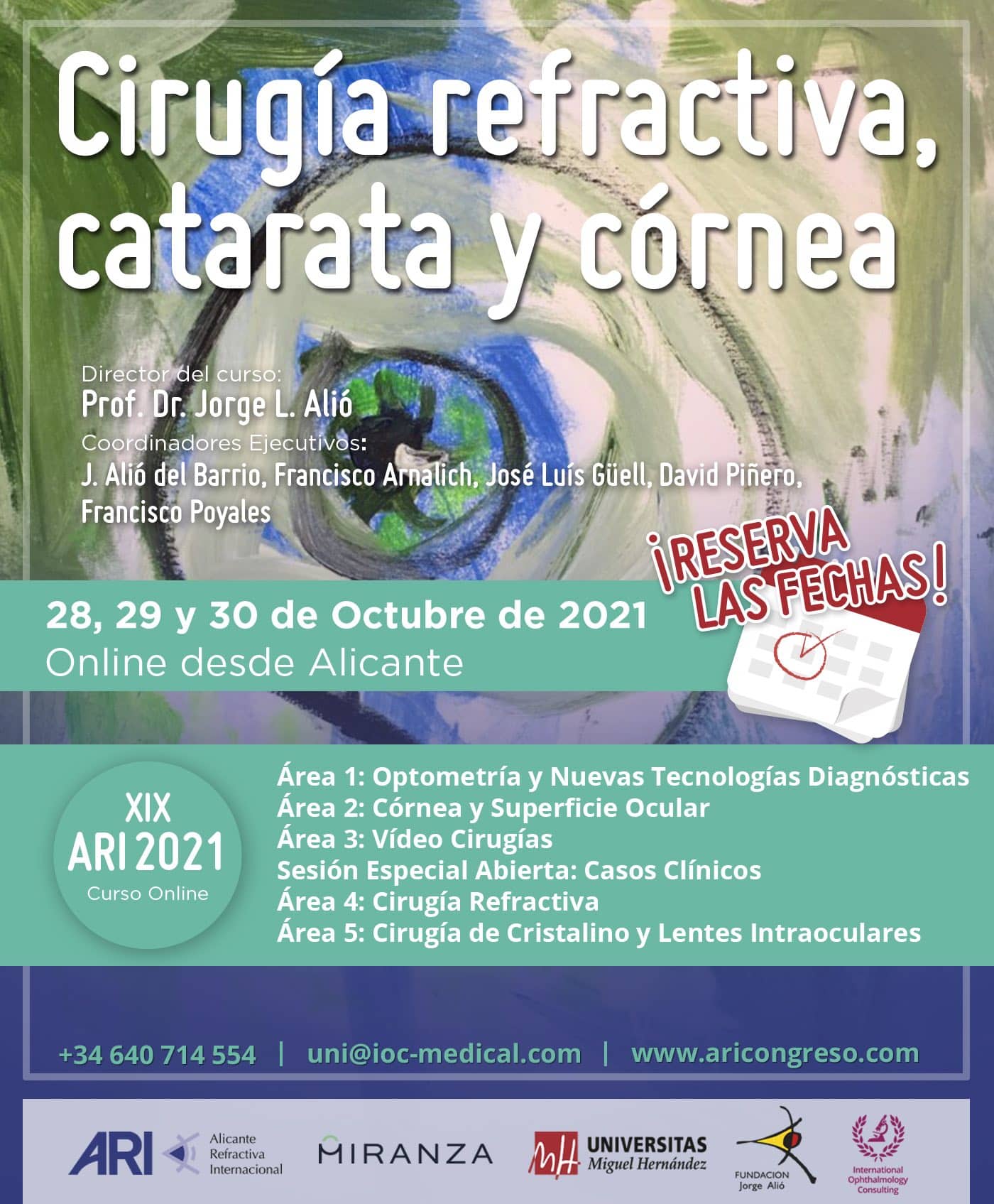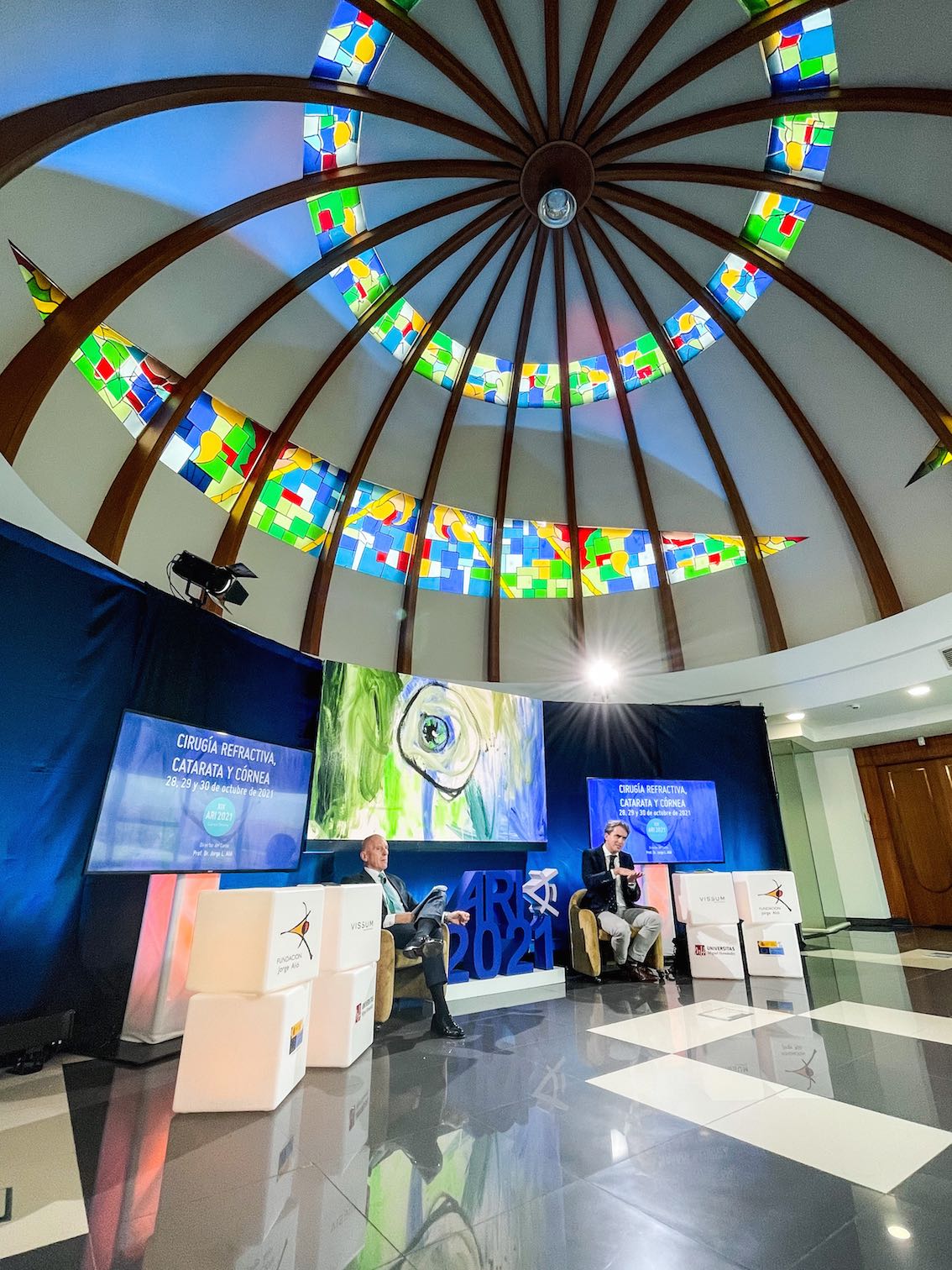ARI 2021 ACHIEVES MORE THAN 2.000 REGISTRATIONS AND BECOMES THE FIRST ONLINE OPHTHALMOLOGY MEETING IN SPAIN
More than 90 speakers from all over the world shared their knowledge and experience on refractive surgery, cataract and cornea fields
Among other novelties, there were mentioned the fascinating use of artificial intelligence to detect pathologies and there were presented the 13 most innovative current ocular lenses in the country
The XIX Alicante Refractive International Congress (ARI), held on October 28th, 29th, and 30th at the Vissum Ophthalmology Clinic (Miranza Group) in Alicante, Spain, attracted more than 2.000 registered attendees.
This number marks a record of popularity for this event, and makes it the first online ophthalmological meeting in Spain. More than 90 speakers from all over the world had the opportunity to share their valuable knowledge and experience on the refractive surgery, cataract, and cornea fields of expertise.
Among the most outstanding innovations presented at this virtual congress, the attendees could learn about the use of the artificial intelligence to detect ocular pathologies, the presentation of the 13 most innovative ocular lenses that have appeared in the country in the latest months, as well as the treatment of the dry eye problem, which has become more pronounced due to the prolonged use of screens and masks for protection from COVID-19.
The Spanish leading figures in Ophthalmology and Optometry inaugurated ARI 2021 with the Session 1 ‘Optometry and New Technology’, centered in clinical optometry and the use of high technology in vision science. This introductory session was led by the coordinators David Piñero and Gonzalo Carracedo, who also took care of the discussion about the topics as the clinical advances and control of myopia, contact lenses in irregular corneas, evidence-based vision therapy and multidiagnostic platforms.
Session 2 ‘New technologies for clinical studies’ was under the direction of César Villa, who explained the increasing role of the artificial intelligence in the detection of ocular pathologies – currently a topic of great international and general interest in the whole field of Ophthalmology.
Among many other contributors in this session there was Manuel Rodríguez Vallejo, who explained the optical quality measurements; Jerome Quenor, who talked about the non-presential refractive telediagnostic techniques; and Prof. Norberto López Gil, who made a great presentation about visual health applications.
The second day of this online congress was dedicated to the area of ‘Cornea and the ocular surface’, and was coordinated by Francisco Analich and Jorge Alió himself with the participation of an important panel of experts in these areas.
Thus, the Session 3 ‘Innovations in the treatment of dry eye’ was initiated by the Professor Manuel Benítez del Castillo, followed by the topic of ‘how to create a dry eye unit’ by Maite Iradier, ‘the use of IPL in dry eye’ by Alejandra Amesty, and ‘the use of periocular PRP’ by Alejandra Rodríguez. This gave way to the Session 4 ‘Management of highly complex corneal problems’, with a panel discussion directed by Juan Álvarez Toledo, José Luís Güell, Victoria de Rojas and Alberto Villarubia.
Topics such as ‘corneal graft rejection’, ‘limbal transplantation’, ‘emergency therapeutic keratoplasty’ and ‘endothelial keratoplasty in complex cases’ were discussed in this part of the congress.
There was also more time dedicated to ‘The complicated cases’ (Session 5) and to the ‘Anterior Segment Innovations’ (Session 6), both coordinated by the Professor Jorge Alió and José Luís Güell. These proposals offered videos by national and international authors on cases of special interest for the anterior segment surgeons.
In the Session 7 ‘Therapeutic Refractive Surgery’ which began with a keynote by Dr. Dan Reinstein on correction of irregular astigmatism, followed by presentations by Paolo Vinciguerra, Miguel Maldonado and Jorge Alió del Barrio. Session 8, ‘Innovations for the present and future’ in refractive surgery, featured talks on innovations in femtosecond platforms for SMILE, new phakic lenses and long-term results of the ICL lens.
On the last day of the congress, the main topics to discuss were ‘the Crystalline Lens Surgery’ and ‘Intraocular Lenses’, and in the Session 9 ‘Calculation of Intraocular Lenses’ the most outstanding talks were given by the great professionals such as Dr. Barrett, Dr. Hardten, and Warren Hill.
This session was coordinated by Jaime Aramberri, who also participated in it, as well as by Dr. Francisco Poyales and Dr. Jorge Alió. On the other hand, Session 10 ‘New Intraocular Lenses’ presented a broad panel in a fast-paced exhibition format for the 13 most innovative ocular lenses that have appeared in our country in the recent times.
ARI 2021 was closed with the last Session 11 ‘Complications in Cataract Surgery’, also coordinated by Dr. Francisco Poyales and Professor Jorge Alió. The topics to discuss were centered in ‘the failure for the neuroadaptation of multifocal lenses’, ‘macular edema’, ‘refractive surprises’ and ‘postoperative endophthalmitis and its prevention’.
This international congress also offered 20 online clinical cases in which medical situations of special relevance were presented by different national authors. Each of these cases were commented and discussed in detail, and are now available at aricongreso.com, as well as the rest of the presentations of all the different sessions.
This new edition featured more speakers, scientific sessions and clinical cases. It was a unique opportunity for ophthalmologists to discover the latest innovations in the areas of the Vision Sciences. The program combined national and international speakers from countries such as Australia, Egypt, France, Germany, Holland, Italy, Slovenia, the United Kingdom, the United States and the Netherlands, among others.
A large panel of specialists doubled the number of the previous edition participation. As a novelty, 11 scientific sessions were finally held, six more than in the last year, and for the first time, ARI 2021 left open the presentation of clinical cases in the Special Session, where any attendee could participate.








